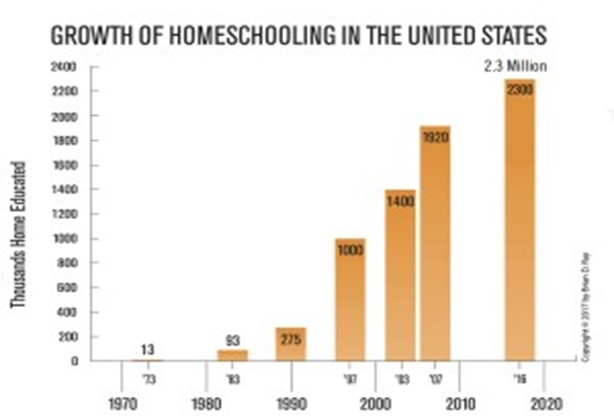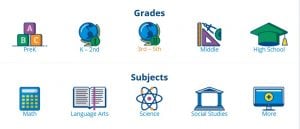Is Homeschooling for You?
Whether the novel and progressive concept of homeschooling is for you is a multi-layered question and a complex decision. But help is on its way. In this article, we will equip you with everything you need to know about home schooling, including the local laws, the most popular reasons behind homeschooling, the learning outcomes, the expected costs of homeschooling, a list of resources for home schools, and the most popular homeschooling methodologies or approaches available to you.
Homeschooling is primarily constrained by the regulations of the country your child lives in. Once you know what the law has to say, there are several other personal considerations that you must go through before you decide whether homeschooling is for you. A few popular reasons that might trigger a parent’s interest in homeschooling include dissatisfaction with the local education system, poor quality of teaching in the neighborhood school, a lifestyle involving frequent travel, a different philosophy with respect to education or even religious reasons.
However, the fundamental basis for homeschooling is always the same: as parents, you have your own unique plans for how you want your child brought up and you want to take charge of your child’s education hands-on. It is indeed a noble thought albeit daunting one for you as a parent.
Can I homeschool?
Worry not, because homeschooling is not what it used to be – you don’t have to teach your child everything yourself. There are plenty of online resources for homeschooling parents to help you design curriculum, lesson plans, activities, and assessments. Several active support groups have emerged to guide you with the process. Homeschooling parents are part of active online communities to share notes and experiences. With online tutoring services, you can hire on-demand tutors for subjects and topics that you are not familiar with. All in all, homeschooling has never been more parent-friendly.

Homeschool
Homeschooling laws around the globe
There are several European countries where homeschooling is out of the question. Germany, Spain, and the Netherlands are some examples of countries where it is illegal to homeschool.
On the other hand, if you live in the United States, you are in luck because all the fifty states in the country accept homeschooling as lawful. Even though the U.S. Supreme Court does not have a specific ruling on homeschooling, there are precedents where it supported the rights of parents to keep their children out of US schools for specific reasons.
In several developed countries like Australia, Canada, France, Japan, Russia, South Korea, and the United Kingdom, homeschooling is steadily becoming mainstream.
Is homeschooling regulated in the United States?
Laws regarding homeschooling
If we look at the US landscape where homeschooling is getting popular, the laws or statutes around it vary widely across states. All 50 states have legalized it. The statutes around homeschooling decide the extent of the burden placed on the parents as per the law.
- In states like California, Indiana, Texas, etc., homeschoolers must comply with the laws that apply to private schools.
- In some states, for example, Jersey and Maryland, homeschoolers must pay attention to the state’s compulsory attendance statute. There are no other specific references in law to “homeschooling”.
- In states like Maine, New Hampshire, and Iowa, there are specific statutes that relate to homeschooling which goes by other nomenclatures like “home instruction”, “alternative instruction” or “competent private instruction”.
You will need to do some homework on the rules of your state before you take a plunge.
Support from states for homeschooling
Support is available to the employees of the Department of State if they choose to homeschool their children in K-12 grades during overseas postings. This Home Study/Private Instruction Allowance is a reimbursable allowance education program that meets certain requirements.
What data tells us about homeschooling
So, how widespread is homeschooling? Research conducted by National Homeschool Education Research Institute (NHERI) provides us with the following estimates for the US:
- Between 4 and 5 million children are being homeschooled in the K-12 level. That represents about 7% to 9% of all students in this school age.
- The surprising fact is that there were only around 2.5 million homeschooled children in 2019 (or 3% to 4% of school-age children).
- Clearly, the numbers grew dramatically between the periods 2019-2020 and 2020-2021. What is more, the trend has been growing at 2% – 8% per annum over the past several years.
- One study of the demographics of families who home school their children shows a wide variety of people in terms of religious beliefs (atheists, Christians, and Mormons), political leanings (conservatives, libertarians, and liberals), income levels (low to high-income families), race (black, Hispanic, and white), educational background of parents (PhDs, GEDs, and no high-school diplomas).
- One nationwide study by the U.S. Department of Education shows that in 2019, 41% of homeschooled students were Black, Asian, Hispanic, and others (i.e., not White/non-Hispanic).
NHSERI even goes so far as to suggest that homeschooling may be the fastest-growing form of education in the United States. This is very positive for all those who are already homeschooling their children.
The economic impact of homeschooling
Education in public schools in the United States is funded by taxpayers’ money. However, if you choose home-based schooling for your child, you are not depending on tax-funded resources. The finances associated with homeschooling are estimated to be over USD 27 billion. Therefore, this is the amount American taxpayers are saving due to parents who choose to homeschool their kids. The average tax-spend per pupil annually is over USD 14,000 in public schools, not accounting for capital expenditures. On the other hand, a family spends an average of USD 600 per child for homeschooling annually and the taxpayer spends nothing. This, of course, does not include time parents spend on homeschooling.

Homeschooling Growth in the US
Popular reasons why parents opt for homeschooling
Special needs
Parents of children with special needs or highly prodigious children find traditional schools unsuitable for their needs. Home schooling allows them to customize the curriculum and for their child to improve learning outcomes compared to school.
Nontraditional teaching methodologies
The pedagogical paradigms and teaching methodologies used in traditional schools are standardized. However, there are parents who want to employ more modern methods that are far more effective for learning. For example, science continues to be taught in school in a lecture-based way using chalk on a blackboard. However, there’s a growing movement towards demonstrating science through everyday phenomena.
Family bonding
There are parents who want to play the role of teachers in their children’s lives to build stronger family bonds with their children as well as between siblings.
Social skills
It is believed that homeschooling improves the child’s social skills with youth and adults compared to traditional schooling. Because of their close, almost friend-like interactions with parents and private tutors, they learn to treat adults like peers rather than authority and interact comfortably. On the flip side, homeschooled kids do not get to interact with their peers. This may deprive them of learning certain facets of social skills.
Safety
A safe learning environment for children and youth is indeed a great source of motivation for home-schooling. There are growing reports of gun violence in schools, drugs and alcohol, psychological stress due to bullying, racism, and improper exposure to sexuality in educational institutions. It is only natural that parents cite safety as a big reason for opting for homeschooling their children.
COVID
The pandemic encouraged a lot of parents to try out homeschooling as an alternative to institutions. Although a lot of this shift in attitude may be passing, some will likely linger long after the pandemic.
Worldview and philosophy
There are parents who feel strongly about imparting a set of values, beliefs, or worldviews to their children. They may find that traditional educational systems are incongruent with their belief system. Ideological differences often stem from religious beliefs but not necessarily always. In some cases, parents simply supplement schooling with theistic education. In other cases, the child is entirely placed in a homeschooling setup.
Pursuit of passion and excellence
Take the case of a child prodigy in an alternative field such as sports, music, dance, etc., pursuing an ambitious goal such as the Olympics or a place in the Royal Academy of Music. Such pursuits require utmost dedication from a very early age. Homeschooling is a great idea for such students to make sure they get basic education without its distractions.
Vocation and business
Most people want an education to get a job. But families that have a family business or a vocation they pursue do not see formal school education as a necessary step for employment. The expectation from the children of such families is that they learn the ropes of the family business, trade, or vocation. Homeschooling is often the way forward for such families.
Convenient online tutoring platforms
Parents around the world are now seriously prospecting homeschooling because they have the confidence that the child will be in safe hands. There are several online tutoring platforms where you can hire freelance tutors without hassle. ViTutors is one such platform where parents get to select the right people from the thousands of qualified tutors listed here.
ViTutors hosts tutors for all subjects, schooling levels, and budgets. There are tutors who specialize in homeschooling as well. They know the local school curriculum and will be able to plan an entire academic year for your child. In case you want to step aside from the prescribed curriculum, even niche subject area tutors can be found on this platform. Tutors can be from anywhere in the world. As parents, you will be able to put together a curriculum fully customized for your child’s learning needs and interests.

Home school
Impact of homeschooling on learning outcomes
Control on curriculum and teaching methodology
This is one core reason for parents to choose homeschooling: they have complete control over what and how to teach. For example, if the student shows an interest in rocket science, then the parents can get specialized STEM tutors to go deep without digressing into irrelevant topics. If the student enjoys animal care, the parents can nurture that interest specifically. They can opt for a homeschooling tutor who can deliver the topics using cutting-edge innovative teaching methodologies rather than dull lecture-based tutoring.
Teaching is centered around mastery of topics
In a homeschooling environment, the child’s learning is squarely centered around outcomes. The homeschooling tutor does not rush with a topic glossing over the child’s pain points. The tutor systematically tries different approaches until the student has mastered the topic.
Learning by doing
A homeschooling environment is much more conducive for a hands-on approach to education. Be it sciences, social studies, language, or math, there is scope to learn these subjects in a much more solid way through experience and interaction with the environment. Classroom learning has limitations in this respect that home schools can easily overcome.
Eliminate duplicate instruction
Many students attend regular school and supplement lessons with a private tutor or parental help. In such a scenario, the student has to deal with two separate instruction styles and content delivery. For example, the Algebra teacher in school may have one approach to problem-solving whereas the online algebra tutor has another. This may confuse the student. Homeschooling eliminates this unnecessary confusion.
Free time for hobbies
Imagine taking a week off for intensive football practice without worrying about missing homework, project deadlines, or classroom assessments. With homeschooling, you truly become the master of your ship.
Life skills
Any child that spends time around the house will more likely participate in everyday chores like cooking, cleaning, and laundry, and learn to be very efficient with them from a young age. They grow up to become mature independent adults.

Home schools
The impact of homeschooling on academic performance
There are studies that compare the academic performance of homeschoolers with their peers in traditional systems. The results are very encouraging for homeschoolers.
School performance
According to NHERI, on average, homeschooled students have scored 15 to 30 percentile points above public-school students on standardized academic tests. The public-school average is the 50th percentile.
They state that 78% of peer-reviewed studies on academic achievement show statistically significant superiority of homeschooled students over their institutional peers. This result holds good irrespective of the level of education of the family or household income. An interesting fact is that homeschooled students are observed to score above average on standardized tests such as the ACT and SAT, as well.
College education
The greatest concern of parents toying with the idea of homeschooling is college admissions and employability. But did you know that highly selective colleges like the Ivy League universities are actually grabbing homeschooled students? Homeschooled students demonstrate great skill for autonomous learning, self-initiation, discipline, and individual thinking, all of which colleges value highly. This knowledge comes as a big relief to parents interested in the idea.
How much does homeschooling cost?
We have put together some broad ranges to help you get a sense of the annual costs involved in homeschooling per child in the United States. The cost will, of course, vary according to your location and other choices. However, here are some estimates per Time4Learning.
School supplies: $150-$300
Field excursions: $100-$250
Curriculum: $350-$750
Extra-curricular activities and hobbies: $100-$500
Total homeschooling cost per student per year: $700-$1800

Celebrity homeschooling
Homeschool Success Stories
Homeschooled kids who are famous today
Emma Watson
The actress who played Hermione Granger in the Harry Potter series, Emma Watson didn’t actually study at Hogwarts as many of us like to believe. She was in fact homeschooled along with her costars on the sets. They had sessions that ran for 5 hours a day. Emma Watson went on to do undergrad studies in English Literature at the prestigious Brown University.
Serena Williams
The legendary tennis player of our times, Serena Williams, was homeschooled by their father during her elementary years to help her stay focused on her tennis training. However, that reversed on high school when she attended high school taking a break from tennis to focus on education.
Will Smith and Jada Pinkett Smith
The Smiths have been homeschooling their three children since 2003 and have declared themselves big fans of this approach. In fact, they have teamed up with other parents who believe in homeschooling to put the children together in sessions.
Jennifer Lopez twins
Lopez’s twins started out with homeschooling. However, later, they decided to join a regular school in Miami.
10 steps to start with homeschooling
We have spoken a great deal about why you should choose homeschooling for your children and what considerations you must have before doing so. Once you have decided to go for homeschooling, here is what you need to get started.
#1 Talk to the kids
Your kids need this talk, so he/she can adjust to the idea of homeschooling. You must also lay down the expectations of this arrangement clearly. This is a necessary step particularly if your child is a school-going child and must now discontinue that. Further, you must address concerns around losing friends or ending school activities.
#2 Plan the curriculum
When you want to start homeschool, you can’t just have a curriculum planned for a year. You ought to have a plan in place for the next few years or for as long as you intend to teach your child in home school. It is always a good idea to start with the standard school curriculum for each grade as the benchmark. At this point, you should know how your home school has to differentiate from a mainstream school. Take the services of a good homeschooling tutor to help you design an over curriculum. For older kids, it would best to hire an experienced high school tutor.
#3 Differentiating from mainstream education
At this point, you should know why you are opting to home school your child, and how your home school has to differentiate from a mainstream school. You should ensure that your objectives for taking this major decision are fulfilled. Discuss your objectives with your homeschooling tutor and have him/her incorporate changes to the curriculum based on these objectives. The only thing you have got to keep in mind is that the more offbeat your plan is the more difficult it may be for your child to re-enter mainstream schooling should you require it.
#4 Identify the workstation
This is important. You must have a specific spot in the house for your child to “go-to” when it is time for lessons. This spot should not be close to devices like the TV or game stations or any other source of distraction. It should be uncluttered, well-lit, well-ventilated, and with proper internet access. Also, you should install teaching essentials like a whiteboard set up, table and chair, book racks, and a computer.
#5 Fix up a daily routine
A sustainable study routine is important to enforce from day 1. Otherwise, the whole idea of homeschooling may collapse. Start the day at a reasonable hour and include sufficient breaks. The number of hours and break timings should be largely non-negotiable. When you define learning hours per day, make sure you keep your child’s grade or level in mind.
#6 Keep it constantly varied
Have a mix of activities every day and day after day. Even though study timings are fixed, the day shouldn’t be monotonous. Also, plan a weekly calendar with different activities on different days. Sports, excursions, museum trips, history walks, etc. are all part of this.
#7 Outdoor activities
Children enjoy the outdoors. Make sure you schedule outdoor activities on a weekly basis. A smart thing to do is to build it into your lesson plan. Science/biology, English literature, etc. are easily taught outdoors. If your children have online tutors this may be a challenge.
#8 Clubs
If your child is being homeschooled, the one good thing they miss out is interest groups or clubs in school. A typical school provides opportunities for forming interest groups like art club, history club, debating club, acting clubs, cheerleading clubs, etc. So, you now must find private avenues to nurture your child’s interest. There are several online communities for students that you could explore. These clubs conduct physical events as well.
#9 Homeschooling Resources
There is a vast repository of teaching resources available for homeschooling. Make sure you make the best use of resources. You will find video streams, podcasts, games, and quizzes, educational posters, etc. suitable for every school level.
#10 Reach out to other homeschoolers
If you have a network of homeschoolers in your community or neighborhood you can even incorporate some socialization by combining activities with the other kids. The outdoor trips that we discussed above are good examples of activities that can be combined.

Homeschooling online resources
Homeschool resources you must know
Some resources are specific to home schools whereas others are generic teaching resources. Be sure to explore Khan Academy for K-12 math and science, Duolingo for languages, Scholastic for all subjects up to K-8, XtraMath for math lessons, TED-Ed for educational videos across a wide range of subjects, etc. In addition to these, here are a few resources specific to homeschooling parents.
#1 Time4Learning
The is a preschool to 12th-grade resource for parents to design a curriculum suited for a home school. It covers all subjects including core subjects (math, language arts, science, social studies), foreign languages, and electives for high schoolers. The website adopts a traditional homeschooling method and delivers its content online.
https://www.time4learning.com/
#2 eTap Homeschool
This is a resource for Pre-K to grade 12, covering all subject categories. It is a good online resource for tests and assessments for elementary and high schoolers and also for college admission exams like the ACT, SAT, GED, etc. It is priced at USD 39/month.
#3 Quest Clubs
Quest Clubs is quite a unique resource for home schools in that it is a badge based similar to a scout’s program. In addition to traditional subjects, they also include sports, outdoor activities, volunteering, club activities, etc. The Quest Club is a good way to bring in an element of socialization in homeschooled children. Badge collection keeps them engaged as well. Quest club is available for all school levels and is accessible both online and as a physical club.
#4 Calvert Homeschool
Calvert Homeschool is a product meant for kindergarten to K-8 levels. Each level in Calvert homeschool has 160 lessons and 20 reviews. They use a blend of traditional textbook learning and online lessons. Calvert homeschools adopt a teaching methodology called subject integration where they introduce a certain topic across all subjects. That way, the child appreciates the topics from different dimensions – the history, literature, art, and science of it. They are an accredited organization offering live teacher support and even a high-school diploma. It costs about USD 229 per month to avail of their services.
https://www.calverthomeschool.com/
#5 Grace and Grit Box
Grace and Grit is an interesting resource for homeschooled girls between 3rd and 6th grades that teaches them self-esteem/confidence through history and social studies. The product is not centered around religion. The product is available on a subscription basis.

Montessori home school
Popular Home School Teaching Methods
Most home-schooling parents have strong opinions and biases towards the ideal education for their child. Every parent wants something eclectic. Therefore, it follows that there are different methodologies for teaching to suit each parent’s educational philosophy. After all, homeschooling is meant precisely to offer the flexibility to adopt methods according to their unique plan for their children.
Whatever the method that suits your needs, we highly recommend that you bring a formal online tutor on board to streamline the home school syllabus. At ViTutors you will find thousands of highly qualified tutors from all over the world for every subject, level, and budget.
Charlotte Mason Method
Charlotte Mason, a 19th-century educator of British origin, is one of the earliest proponents of homeschooling. She developed an approach to education that involved short periods of study what we call bite-sized learning today. For elementary level students, she advised no more than 15-20 minutes and increased the length to 45 minutes as they approached high school.
The foundation of the Charlotte Mason Home School lay in plenty of reading. Reading spanned classics and biographies and other material referred to as “living books” which covered topics of social, cultural, moral, or ethical implications. The second tenet of the Charlotte Mason method is an observational approach to learning, letting the child discover. There were, of course, all manner of other activities in this study period, like nature walks, journal writing, observation, memorization, and narration.
Montessori Method
The Montessori homeschool method stresses a humanistic approach towards teaching resting on interest-based and individualized learning. This is commonly adopted by parents of kindergarten and elementary kids. The parents with homeschooling tutors use a wide range of tactile toys or tools meant to trick the young children into learning new things purely driven by their own interest and curiosity. The Montessori style focuses on self-paced and unstructured learning.
Unit Study Method
The unit study method takes advantage of any natural interests that a child might possess and turn them into manipulatives for learning. For example, if a child loves cars, then math, science, history, and language can all be imparted to the child around cars.
Roadschooling Method
Roadschooling, as the term suggests, is a novel and eclectic idea where parents impart education through travels. It is a bit of a misnomer, but it definitely takes the child away from a traditional school environment. Learning is spontaneous and quite unstructured. However, parents who believe in roadschooling find the learning is wholesome and thorough with much greater retention on the knowledge thus gained. It is, however, recommended that a broad curriculum be put in place with the help of a homeschooling tutor. Many parents even hire online tutors to teach children during travels and to keep them in line with a planned syllabus.
Worldschooling Method
The central idea behind this method is to expose the child to the big wide world around them. In worldschooling, students learn by experiencing and interacting with the world around them. This often involves traveling together and using the journeys to enhance their child’s education. While the learning style is a lot like roadschooling, travel is only a part of this method rather than all of it.
Eclectic Homeschooling
Eclectic homeschooling is the method that most home school families follow. It is highly flexible and can be customized and personalized to suit parents’ needs for their child. Eclectic homeschooling uses a blend of several methods to create a learning environment for the child.
For example, they follow the unit study method one semester and roadschooling method in the next. Or they may choose to go the classical way and follow a structured syllabus systematically with the help of home school tutors if required. They may even choose different methods for different subjects, like Charlotte Mason for history and roadschooling for science.
Classical approach
The classical approach is a history-based, idea-oriented educational model that exposes students to the great minds of the past through literature, essays, philosophy, etc. Here, we follow a style of tried and tested learning rigor where a child goes through three different stages of education step by step. These are the grammar stage, the logic stage, and the rhetoric stage. At the foundation of the classical approach to homeschooling is language. This approach is a tried and tested one, practiced since the children from royal families and the nobility have had private tutors visit and school them. More recently, many more families have adopted this approach, particularly the ones that want to incorporate values or character education into the curriculum.

Classical approach to homeschooling
Conclusion
With over 4 million students in home schools in the United States, the idea is certainly becoming mainstream. Thanks to the pandemic, families are spending time at home with their children closely observing them getting their lessons in online classrooms and helping them out with homework. They can see for themselves what is lacking in traditional schooling and what’s better for their children’s futures. In other words, they are indeed getting more hands-on with their children’s education.
Homeschooling has become easier than ever before thanks to the number of educational resources specifically designed for interested parents. At ViTutors, we go a step further and give you access to a wide range of tutors to help you with your homeschooling needs. There are tutors for every subject and every topic of interest. So, if your little munchkin loves marine life, you will find just the tutor to nurture that interest. If you are worried about expenses, then you’ll find tutors for all budget levels on ViTutors. You do not have to hold yourself back on homeschooling anymore. All the best!
